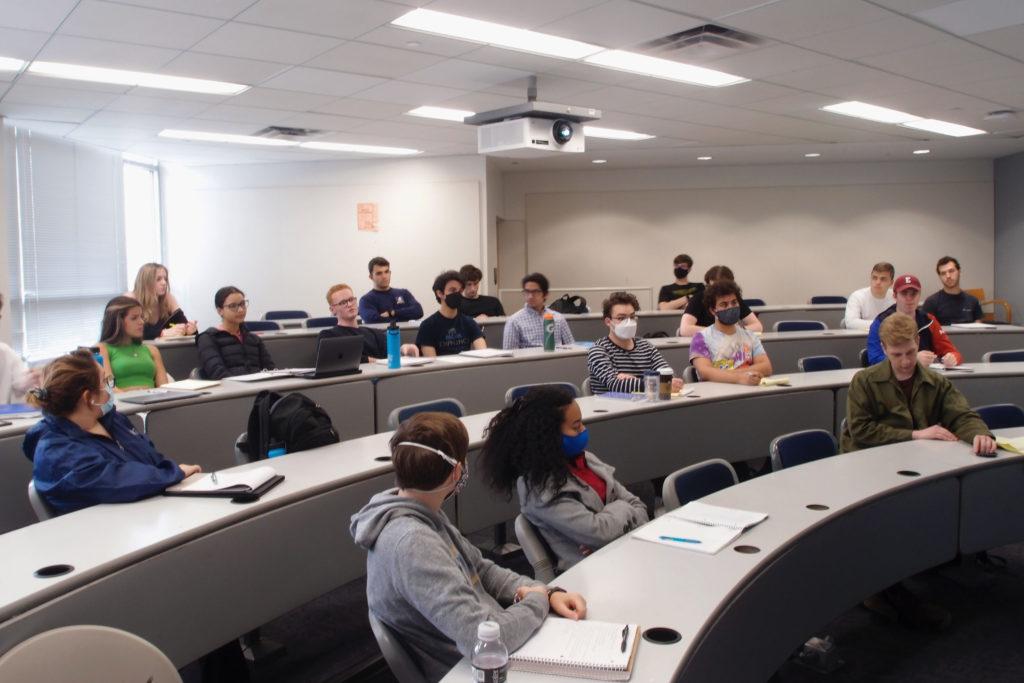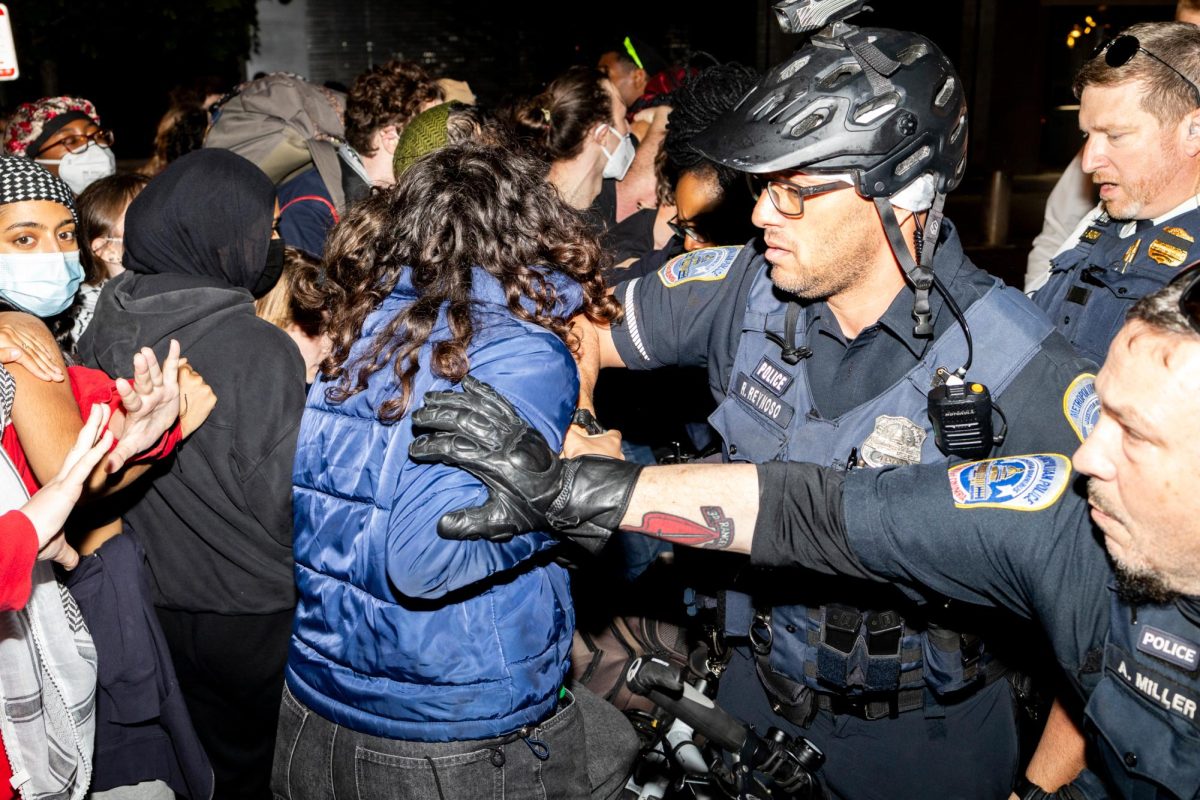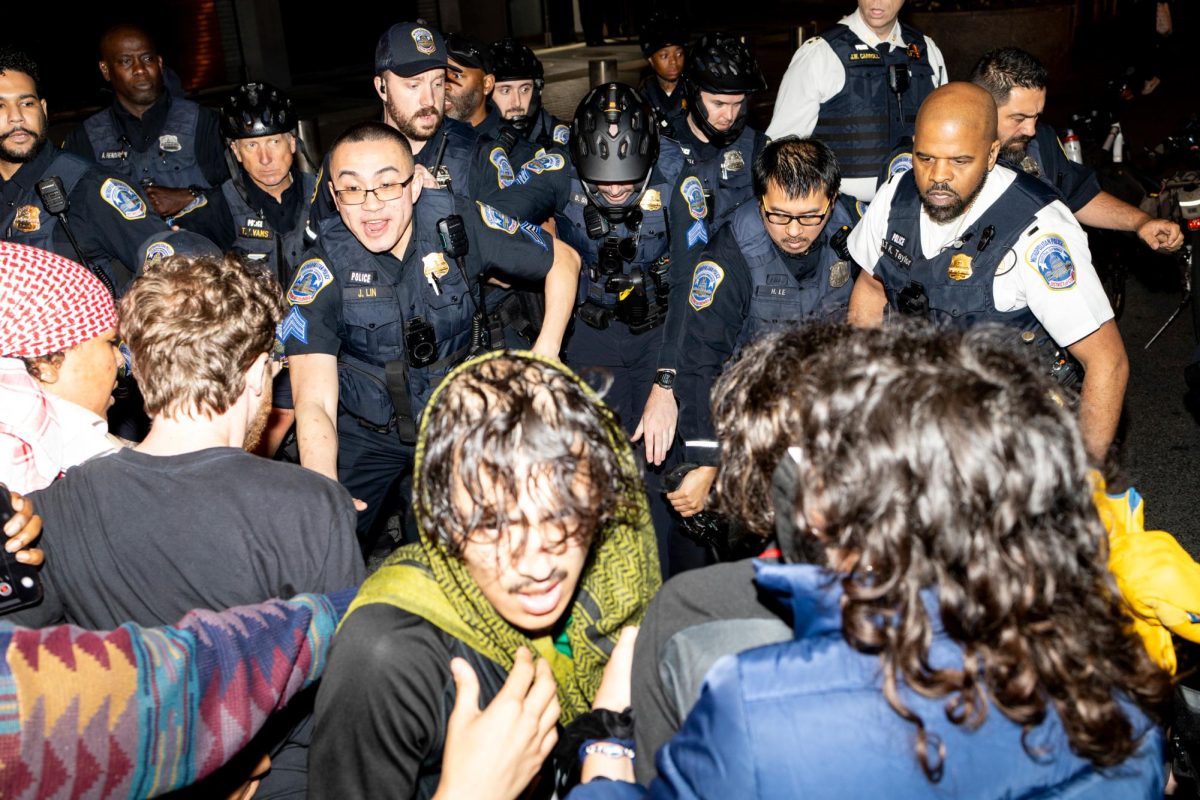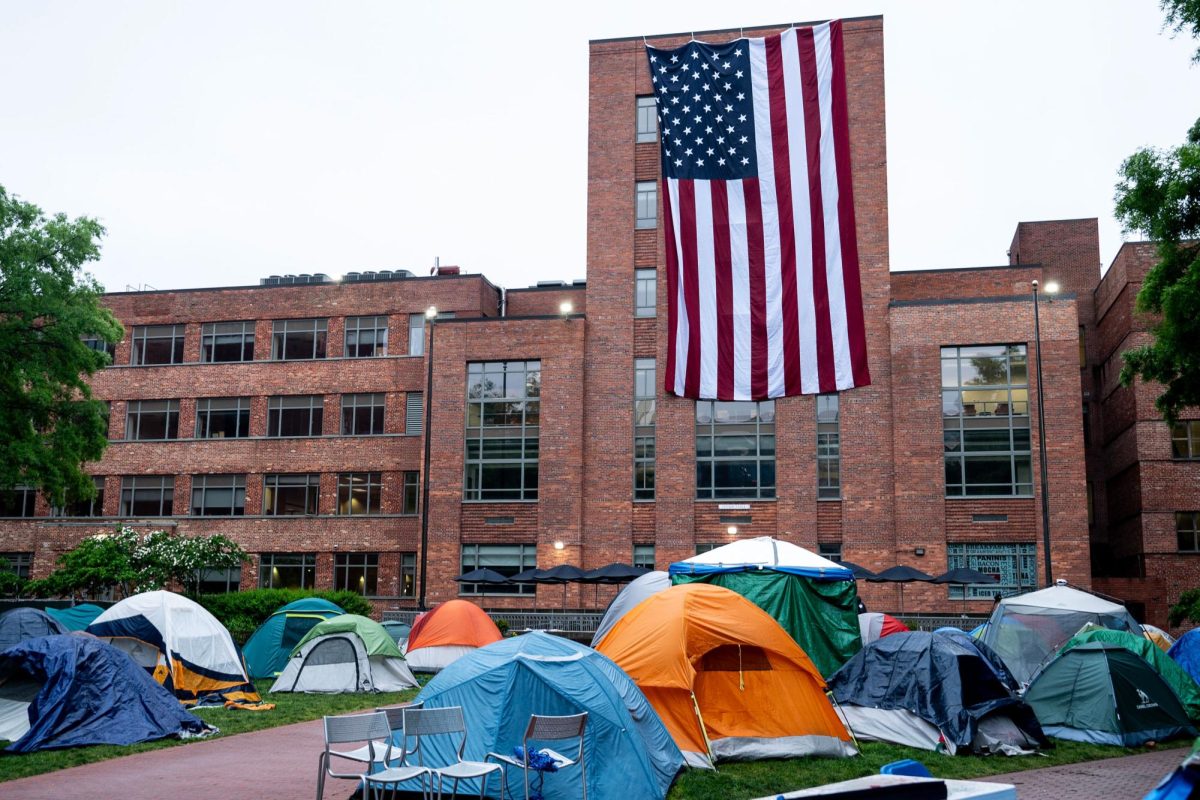With GW’s mask mandate lifted and COVID-19 cases on the rise, students were slow to leave their masks behind last week, largely continuing to take pandemic-related precaution indoors and keeping in line with officials’ recommendations.
Despite the University’s move to drop the mandate last Monday, officials are continuing to “strongly recommend” the use of KN95 or N95 masks – guidance that students said they would follow in some capacity depending on circumstances, like crowded classrooms, COVID-19 symptoms or faculty encouragement. But 50 students shared conflicting views on the extent to which they would adhere to GW’s recommendations, with some tentative to endanger the health of students nearby and others more eager to revert to a pre-pandemic way of life.
GW’s seven-day positivity rate has approached 2 percent after remaining near 1.5 percent for much of the past two months. Public health experts are also monitoring the BA.2 subvariant of the Omicron variant, which accounts for about 72 percent of all new coronavirus cases, according to Centers for Disease Control and Prevention estimates.
Senior Madison Jennings – the president of the Disabled Students Collective, a student organization that works to provide a safe space for students with a disability on campus – said the mask mandate was lifted too early, leaving high-risk students concerned about attending classes during an uptick in COVID-19 cases across campus this week. Members of the DSC, many of whom are at high risk, said they are very concerned about the end of the mandate.
“In the context of disability, as president of the Disabled Students Collective, I thought immediately it was too early,” she said. “There’s still a lot of people that are remote learning, people that are high risk and that are afraid to go back in person.”
She said the organization has received emails from students who are worried about their health and the timing of the decision to lift the mandate because they are still at high risk for COVID-19. Jennings said she attended classes virtually Monday to see how many students would wear masks and decided to attend class in person later that week when she saw most students were wearing masks.
She said DSC created and released a petition urging officials to bring back the mask mandate, which has garnered 30 signatures as of Sunday night. DSC members urged students to continue wearing their masks to protect those who are at high risk in an Instagram post last week.
“The rules may have changed, but the danger to many of us has not,” the post reads. “We ask you to stand with us in support and keep wearing your mask particularly on campus.”
Georgetown and American universities dropped their mask mandates last month, but Georgetown reinstated its mandate effective last Thursday after 117 students tested positive between March 27 and April 2.
Student Association Sen. Gabriel Young, CCAS-U, said he has not felt comfortable since the mask mandate has been lifted because he has family members who currently have COVID-19, and with cases on the rise he is concerned that unmasking would be unsafe.
“I myself have felt uncomfortable sometimes around people who aren’t wearing masks inside the classroom because of the proximity we’re in,” he said.
Young said he will continue to wear his mask indoors to avoid isolation because of a positive test. He said he is also worried about infecting professors who are much older than him and could be at a higher risk of severe symptoms if they contract the disease.
“I recognize that those people around me maybe are uncomfortable with me taking my mask off, and I totally get that,” he said.
Ojas Chitnis, a freshman studying international business and finance, said he was “reassured” that the mask mandate was lifted because it meant that life on campus would take another step toward normalcy.
“I feel less comfortable that now there’s not that added layer of protection for me and my classmates but also more comfortable in the fact that it’s great to see everyone finally,” he said. “And now people are starting to interact more. I’d say that you can actually see when people are smiling, laughing, interacting, that sort of fashion.”
He said GW should have lifted the mask requirement when D.C. lifted its mask mandate in February but said he understands the University kept the mandate to protect students after they traveled back to the District from spring break.
Chitnis said he plans to stop wearing his mask in most settings around campus.
“It depends on the behavior of my peers,” he said. “I just feel like if everyone in the room is wearing their masks besides me then I feel more inclined to wear it. But then if everyone else is starting to not wear their masks, I feel much more comfortable not wearing it.”
Max Katz, a freshman majoring in economics, said he chose not to wear his mask in his classes after the mandate was lifted, which he described as a strange feeling after wearing a mask for so long.
He said communication with his peers is better in the classroom without a mask because it is easier to understand what his classmates are saying. He said although wearing a mask is effective at preventing infection while COVID-19 is at increased levels of spread, wearing a mask has a detrimental effect on people’s emotions and daily interactions because of the barriers it poses to communication.
“It’s also clear that we can communicate better and sort of understand each other better when there are no masks,” he said. “And there’s definitely a detrimental cause to relationships and people’s emotions and interacting on a daily basis with people when you wear the masks.”
Ayah Mahana, Lauren Grauer and Nikki Ghaemi contributed reporting.








